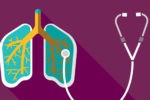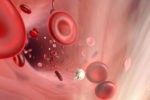National Eating Disorders Awareness Week

For those struggling with eating disorders, hope combined with action can pull them through these difficult times

Eating disorders can present in many forms, including anorexia, bulimia, binge eating, and avoidant/restrictive food intake, all of which can seriously impact one’s health. Those struggling with eating disorders typically have a strong preoccupation with body shape, food intake, and weight in general. Affected individuals may exercise a lot, limit calories, self-induce vomiting after eating and/or abuse laxatives and other diet aids.
In an effort to a further overall understanding of eating disorders and the evolving therapies and treatments, February 21-27, 2022, is slated for National Eating Disorders Awareness Week (NEDA Week). NEDA is an annual campaign designed to further inform and educate the public not only about eating disorders but to also inspire hope, provide support, and offer visibility to those individuals and their families who are affected by eating disorders.

Roughly 24 million individuals in the United States suffer from some form of an eating disorder. These are among the most deadly types of mental health issues today, second to opioid addiction. Eating disorders account for nearly 10,200 deaths annually. Although known to affect mainly women, they can affect men as well. Also, typically believed to be confined to Western countries, there is an increase in cases within Asian and developing Middle Eastern countries.
No matter the mental illness, everyone deserves and needs support regarding their eating issues. NEDA can connect individuals and their families with the necessary resources in addition to professional help. NEDA is there to offer support.
Receiving a diagnosis is the first step towards recovery. When treating an eating disorder, psychological and nutritional counseling must act in concert. Medical and psychiatric monitoring must also take place. Treatment approaches should address not only the symptoms of the eating disorder but also the biological psychological, cultural, and interpersonal facets that play a role in the disorder.
Psychotherapy as a means of treatment.
When choosing a psychotherapist, it is important to understand the type of therapy they provide. Different therapies work differently with different patients, depending on their stage of recovery. There are several different types of psychotherapy that can be used to address eating disorders.
Acceptance and Commitment Therapy (ACT)
ACT focuses on changing the patient’s actions as opposed to thoughts and feelings. Patients learn to identify core values and then commit to goals that align with these values. ACT encourages patients to step aside from their emotions and understand pain and anxiety are normal parts of life. The goal focuses on living an authentic life, which in turn gives rise to feeling better.
Cognitive Behavioral Therapy (CBT) and Enhanced Cognitive Behavioral Therapy (CBT-E)

This approach focuses on the beliefs, values, and cognitive processes that sustain the eating disorder behaviors. Its goal is to modify those distorted beliefs and processes surrounding the meaning of weight, appearance, and shape.
Cognitive Remediation Therapy (CRT)
CRT strives to develop a person’s ability to focus on more than one thing. It targets strict thinking processes that are believed to be an integral aspect of anorexia nervosa. This is accomplished through a combination of simple exercises, reflection, and guided supervision.
Dialectical Behavior Therapy (DBT)
DBT focuses on changing behaviors as the most effective approach. Patients are encouraged to develop skills that replace their eating disorder behaviors. This includes mindfulness, developing stronger interpersonal relationships, regulation of emotions, and distress tolerance.
Evidence-based Treatment (EBT)
While all of these therapies are frequently used to treat individuals with eating disorders, their levels of efficacy can vary. Numerous professionals recommend the use of EBT, which is defined as “the conscientious, explicit and judicious use of current best evidence in making decisions about the care of individual patients.” With respect to eating disorder therapies, EBT usually means the therapy has been assessed in a research study environment and has been determined to be effective in reducing the symptoms of the eating disorders as well as supporting weight restoration in underweight patients and minimizing thoughts surrounding the eating disorder.
It is important to do your research initially and determine what type or types of treatment would be most effective for the patient at hand. Ask your therapist how strictly he or she adheres to the guidelines of the therapy used and how much training he or she has in that area, the percentage of patients they prescribe the therapy for, and how current their knowledge of eating disorders is.
Family-Based Treatment (FBT)
Instead of focusing on the cause of the eating disorder, the focus is placed on refeeding and full weight restoration in the approach to recovery. This approach considers all members of the family as an integral part of the treatment. FBT consists of re-establishing healthy eating patterns, restoration of weight, and returning the control of eating back to the patient.
Interpersonal Psychotherapy (IPT)
IPT is geared for bulimia nervosa and binge-eating disorders. IPT sees the symptoms as taking place within a social context. It is associated with certain tasks and strategies associated with the resolution of a specific interpersonal area. These areas include grief, interpersonal deficits, interpersonal role disputes, and role transitions. IPT is designed to help patients improve relationships and communication in an effort to resolve those interpersonal conflicts. As relationships improve, so can the eating disorder symptoms.
Psychodynamic Psychotherapy
With this approach, it is important to get to the root of the eating disorder. Therapists who specialize in this approach see behaviors as consequences of internal struggles. If those behaviors are discontinued without realizing the underlying reasons for them, then relapse will occur. Any symptoms a patient has are seen as underlying issues and needs and are to be resolved by working through them.
Believe in yourself
( “Recovery: Small victories that make the eating disorder wish it never touched your life.” )
Do not get discouraged. It can take months or even years to recover from an eating disorder. There will be relapses and backslides. Relapsing to normal eating habits takes practice and patience and requires support from family, friends, and professionals. The key is to move forward, no matter the pace, as that is progress in the right direction.
Sources: nationaleatingdisorders.org, nutrition.org






